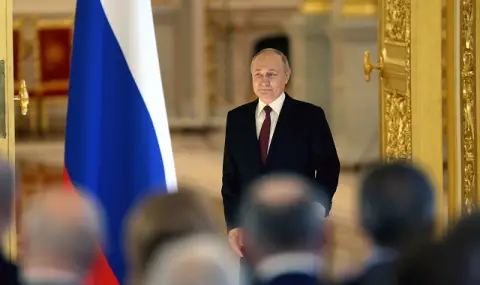Faced with a new acceleration of the war in Ukraine, the West is struggling to come up with a firm and unified response to Vladimir Putin. Faced with new threats from the Russian president, who warns that he may now hit them directly, Western countries are wavering on Ukraine: between renewed support but with limits (Joe Biden), verbal pledges (NATO, France, UK and Sweden) and "caution" (Germany). This is what political analyst Isabelle Lasser writes for the French daily Le Figaro.
Since the start of the war in February 2022, under the guise of unity and firmness, the West has helped Ukraine militarily by constantly hitting the brakes, delivering too little and too late the weapons that could have allowed Kiev to make the difference against Russia . Afraid of the nuclear threat wielded by the Kremlin, and fearing a defeat for Russia considered as dangerous as its victory, Western countries applied a policy of restraint and half-measures to the conflict, which allowed Ukraine to hold out and survive. but not to win.
They hesitated and delayed for a long time before providing tanks, long-range missiles and fighter-bombers to their ally, which was crumbling under the onslaught of Putin's imperialism. Some promises were not kept. Some delivery projects were not successful. "Failing to give the Ukrainians the means to win at the start of the war, the West today finds itself facing a conflict that is more difficult and more dangerous to stop," summed up a French diplomat who would like to see in Europe " more action" and "fewer words".
Transition Period
It is even more difficult now because Ukrainian forces are in a dangerous defensive position and because the entry of 10,000 North Korean troops along with Russian troops has changed the situation by internationalizing the war. Vladimir Putin, who has also received support from Iran and China, is undoubtedly right when he warns Westerners that the war has gone "global". It's more dangerous because the re-election of Donald Trump, who has promised to end the war without saying how, has cast a fog of uncertainty over the world that prompts panic, fear or extreme reactions.
In all wars, the announcement of possible negotiations leads to a race in the run-up to negotiations between the various parties seeking to gain a strong position at the negotiating table. Here, the trend is further exacerbated by the two-month transition in power between former President Biden and the newly elected Trump. So Vladimir Putin accelerated his war to assert his advantage and used nuclear rhetoric and then a new intermediate-range ballistic missile designed to carry a nuclear warhead to deter Western aid to Ukraine.
Faced with these new developments, Volodymyr Zelensky called on the international community to "react" after the Russian ballistic missile launch, which he said increased the "scale and brutality" of the war between the two countries. "We have to apply pressure," he said. Russia must be pushed towards real peace, which is only possible by force. But for now there is no strong reaction." Since the beginning of the war, however, most of the red lines set by Vladimir Putin have been crossed one after the other without provoking a disproportionate reaction from the Kremlin.
Experts note that Russia does not have enough troops to extend its conventional war to European countries and that Putin knows that his regime will not survive if he takes the step of a tactical nuclear bomb. "Neither the launch of the Oreshnik missile nor Vladimir Putin's speech on Thursday represents a significant change in Russia's strike capabilities or the likelihood that it will use nuclear weapons," the Institute for the Study of War (ISW) analyzed.
The Temptation of Peace
But today, faced with Donald Trump, who wants to end the war and transfer its management and funding to Europe, Western capitals are still undecided about what action to take. In other words, the hardness is always the same. Sweden's defense minister promised that no one "will be intimidated by Russia's provocations". The NATO spokesman promised that the new development "will neither change the course of the conflict nor the determination of the Alliance's allies to support Ukraine". In a joint column published in Le Figaro, the foreign ministers of France and Britain warned that Paris and London will not allow Vladimir Putin to "rewrite the principles of international relations" and that they will prevent him from "achieving his goals in Ukraine".
But as the Ukrainians lose ground in the Donbass every week, some Europeans, anticipating the return of Donald Trump and his promises of disunity, are once again tempted by the politics of appeasement. Even before the important debate about the nature of the security guarantees the West should provide against Russia is truly open... Divided, shaken by political or budgetary crises, paralyzed by the idea of finding herself alone in crisis management, without the US, too accustomed to peace and diplomacy, Europe is still struggling to adapt to a new world that is fundamentally governed by the balance of power. However, its fate in the coming years will depend on the outcome of the war in Ukraine.
